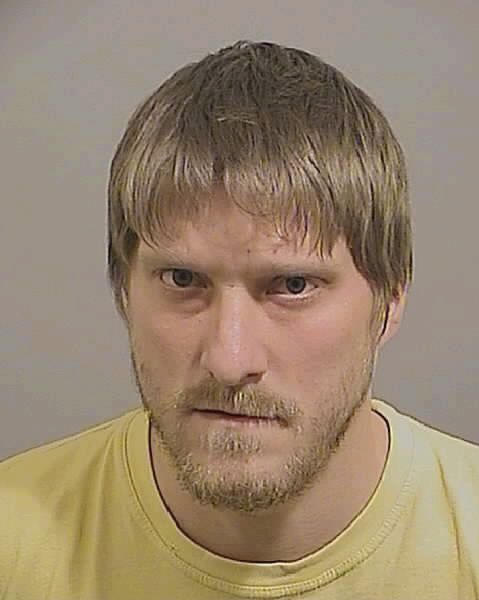A Cape Elizabeth man faces a federal trial in May on charges that he e-mailed death threats aimed at the hosts of a popular National Public Radio program.
John Crosby, 38, is being held in the Cumberland County Jail. According to court documents, he sent dozens of e-mail messages to NPR that included bizarre accusations, profanity and slurs about Jews and women.
The messages allegedly contained threats to torture and kill Melissa Block and Guy Raz, hosts of NPR’s “All Things Considered” news program.
Crosby is a 2009 graduate of the University of Southern Maine and is described as a Cape Elizabeth resident, although he has no permanent address, according to court documents.
A filing by U.S. Attorney Thomas Delahanty II refers to an “unknown psychiatric condition” as an argument for keeping Crosby in jail. When FBI agents arrested Crosby in January in USM’s Glickman Library, he told them, “I have been trying to get your attention for a while,” and asked if they had read all of his e-mails, according to an affidavit.
A search of his car after the arrest turned up a shotgun and shells for the gun, according to the FBI.
Crosby is charged with sending threats through interstate commerce and illegal possession of a firearm.
His attorney, John Geary, said Thursday that he did not want to comment on the case. A family member declined to be interviewed, except to say that Crosby has a history of mental illness.
According to the documents, the e-mails started in November or earlier. NPR notified authorities in January after the messages became more frequent and threatening. NPR said it received more than 20 messages in the three days before Crosby’s arrest.
A message sent on Jan. 17 said: “I am going to kill Melissa Block. … She is commissar who is helping to destroy me to use me as a human sacrifice. She will be raped, beaten, tortured and murdered very soon.”
One sent on Jan. 23 said: “I will remind Mr. Raz that 100 years ago, a … like him would have been hanging from a tree for disrespecting my privacy like that. If I can make it to DC, I will try to find (him) and take care of business.”
A message on Jan. 26 said: “If you continue to portray me as anything but a victim of your power in numbers and monopoly of the airwaves then I will brutally torture and kill all of you … unless you come through with my $3,000,000.00 that YOU OWE ME.”
The FBI says it traced one e-mail back to the wireless address of the Starbucks coffee shop on Congress Street in Portland. Several others were traced back to wireless addresses associated with USM’s Portland campus. Anyone using their own laptop computer can use the wireless addresses to send e-mail messages.
On Jan. 26, FBI agents went to the USM campus in Portland, where a communications specialist traced the e-mails back to the account that Crosby had as a former student. The USM staffer told the agents that Crosby was logged on at the time in the Glickman Library.
The agents found Crosby using his laptop computer on the fifth floor and arrested him. Later, they searched his Volvo station wagon and found the shotgun and shells, according to court records.
Because the e-mails crossed state lines, Crosby is charged with two counts of transmitting threatening communications in interstate commerce. A conviction on that felony charge can carry a sentence of as much as five years in prison.
Crosby also is charged with unlawful possession of a firearm, because of past felony convictions. He was convicted of robbery in 2002 and possession of heroin in 1998.
Crosby has been in jail since his arrest. He was indicted last month and his trial is scheduled to begin May 2.
The case received no public attention and was unknown to USM officials and most NPR employees.
NPR’s interim CEO, Joyce Slocum, sent a message to staffers this week saying she took the threats, and the safety of the staff, seriously.
“Given the sensitive nature of this situation, federal officials advised us to not draw public or staff attention to the matter. This is standard protocol in situations such as this,” Slocum wrote.
USM spokesman Bob Caswell said that until this week, no one at the school was aware of the charges or the report that Crosby had a gun and ammunition in his car when he was arrested.
“Our police don’t know a thing about that,” he said.
Todd DiFede, the FBI supervisory agent in Maine, said details of the case were not kept secret. He indicated there was no reason to notify USM about the gun, which was found after the arrest during a search of the car off campus.
Crosby’s attorney asked the court to allow Crosby to attend his father’s funeral Monday in South Portland. The U.S. Attorney’s Office is arguing that releasing Crosby would be too much of a risk, given the tone of his threats.
Staff Writer John Richardson can be contacted at 791-6324 or at:
jrichardson@pressherald.com
Send questions/comments to the editors.


